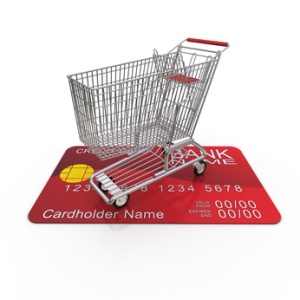 Circuit City credit cards are not issued anymore since Circuit City Store, a reputed US retailer in PCs, consumer electronic products, entertainment software and electronic appliances, went bankrupt in 2009. Shortly after announcing that it had become bankrupt, the company cancelled its cash rewards program. A few months later, Systemax purchased the Circuit City brand and used it to purchase and sell electronic products online. When it was liquidated, Circuit City was one of the largest electronic retailers in the US, second only to Best Buy.
Circuit City credit cards are not issued anymore since Circuit City Store, a reputed US retailer in PCs, consumer electronic products, entertainment software and electronic appliances, went bankrupt in 2009. Shortly after announcing that it had become bankrupt, the company cancelled its cash rewards program. A few months later, Systemax purchased the Circuit City brand and used it to purchase and sell electronic products online. When it was liquidated, Circuit City was one of the largest electronic retailers in the US, second only to Best Buy.
Since Circuit City credit cards were issued by Chase, card holders called up Chase to find out what would happen to their credit cards. Some of them even requested a different rewards program on the same account, something that Chase could arrange in a short time over phone. Later, Chase even informed its Circuit City card holders that they could use their cards in Best Buy.
Circuit City offered two types of credit cards, Visa and proprietary and customers usually preferred the Visa to the proprietary because they could use it to purchase products at other retail stores too, not just Circuit City. Moreover, the Visa card had a very low APR. Card holders could earn points whenever they made a purchase on the card and whenever they collected 500 points, they could redeem them for a gift certificate worth $5, which they could use on any item that took their fancy at Circuit City.
Unfortunately, there were certain terms in fine print, according to which, points remained valid only for 36 months after they were earned. Card holders were, therefore, required to redeem their points for gift certificates before their points expired. They could set their credit card account to automatically redeem their points whenever they collected 500 points, but even then, card holders were expected to use their gift certificates within 90 days. If card holders failed to do so, the gift certificates would become valueless.
The Circuit City Visa card also gave card holders the option to receive financing at 0 percent interest on certain electronic products; however, if card holders opted for it, they would no longer earn points on any purchase they made at Circuit City. The credit card also had a number of advantages such as the facility to earn double points for participating in certain promotions, special offers and much more.
If card holders close their accounts for any reason, they would no longer remain members of Circuit City’s Rewards program. Moreover, they would lose all rewards earned so far as well as unredeemed points. Circuit City was also strict about credit card fraud and abuse and did not take kindly to card holders attempting to cheat. Card holders caught cheating would immediately lose their accounts and forfeit all points and rewards they had accrued.
Those interested could get a Circuit City credit card by applying for it online. The issuers of the Circuit City credit card instantly approved it and allowed card holders to start purchasing right away.